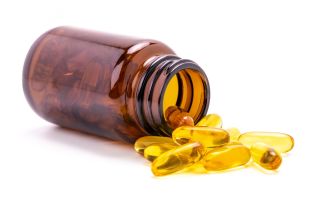Psychopharmacology
The Psychology of Self-Medicating
Alternative, complementary, or dangerous?
Updated March 2, 2024 Reviewed by Gary Drevitch

“The desire to take medicine is perhaps the greatest feature which distinguishes man from animals.” —Sir William Osler, co-founder of the Johns Hopkins University School of Medicine.
The issue of self-medicating behaviors (SM) has long been a thorn in the side of the fields of medicine and psychology. Within the realms of psychotherapy and addiction treatment, self-medicating has a negative connotation. But should it? The World Health Organization (WHO) refers to self-medicating as “the selection and use of medicines by individuals to treat self-recognized illnesses or symptoms.” But with the widening use of both medical and recreational marijuana and the growing interest in the use of hallucinogens in the treatment of mental health and substance abuse disorders, do we need to revisit the issue?
Since the field of psychology has historically focused on what is “wrong” with people, it’s no surprise that SM behaviors would raise red flags. Often the concern is justified, and open discussion is warranted. Additionally, anyone who has worked in the substance-abuse arena knows well the inherent dangers when people turn to drugs or alcohol for relief from suffering. In that vein, their warnings make sense.
However, for much of human history SM was the primary method of treating ailments. Those who routinely self-medicate with aspirin have the ancient Assyrians to thank for it, and medicine has relied on salicylic acid, the active ingredient in aspirin, since ancient times.
The reasons that people turn to SM today, according to a study by the National Institute for Health (NIH), include:
- Perceptions of the mildness of illness.
- Previous knowledge about the medication.
- Emergency situations warranting self-medication.
Self-medication, the study states, is practiced because "it is timesaving, and visits to healthcare personnel add to the financial burden of a family, making self-medication a more viable option.”
Frequently, concerns about SM are focused on people who might be self-treating mental health issues like depression and anxiety. Through word of mouth or online searches, individuals may be guided toward psychotropic medications whose efficacy is often in question and whose side effects can be dangerous. (I’ve heard many “no thanks” from clients when they learn that antidepressants may contribute to weight gain and loss of libido.)
History suggests that there has never been a time when there hasn't been a desire to alter one’s state of consciousness; as stated in another NIH study, “Our taste for addictive psychoactive substances is attested to in the earliest human records.” This paper goes on to point out that the “users” of such substances “included priests in religious ceremonies, healers for medicinal purposes, or the general population in a socially approved way.” The qualifier of “socially approved way” is more than a subtle hint that there is an inherent “right and wrong” when it comes to SM, the attitude that “When I do it it’s medicine; when you do it, it’s a drug.”
With rising costs, limited access, and contradictory findings, it’s no mystery that people often take matters into their own hands and seek “alternative” methods of treatment, including natural supplements, body movement, and mindfulness practices. Personally, when starting cancer treatment and nervously sifting through the list of possible side effects of chemotherapy, the idea of turning to more natural means seemed appealing. While I did choose the conventional routes of surgery, chemo, and radiation therapies, I also added the ancient practices of yoga, qi gong, meditation, energy healing, prayer, and herbal remedies.
We're learning more about brain chemistry and the interconnectedness of mind and body but it’s wise to remain cautious when taking such complex systems into our own hands. I’ve met many people whose attempts to self-medicate not only did not alleviate their symptoms but brought on a host of other issues. That doesn't mean that we should wag fingers of disapproval at those who want to take control of what happens to their bodies. A good sign that we are already heading in that direction is that, in many cases, we’ve replaced the term “alternative medicine” with “complementary practices.” My professional experience is that when I drop the judgmental tone, clients are more likely to share with me their SM practices and have an honest discussion on the pros and cons. This is a fruitful dialogue in a world where the cure is sometimes worse than the disease.
To find a therapist, visit the Psychology Today Therapy Directory.


